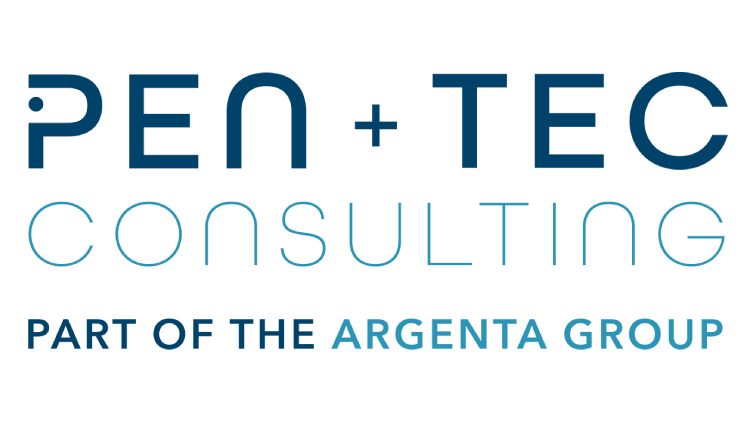Promotional Features
Product lifecycle management – where does Regulatory Affairs fit in?
The use of safe and effective feed additives helps to optimise the growth and health of livestock, prevent disease, and enhance the nutritional value of their products. It can also help to reduce the environmental impact of animal agriculture. By prioritizing food safety in the animal feed industry, we can ensure that the food we eat is of the highest quality and free from harmful contaminants.
Regulatory Affairs plays a vital role in the animal feed additive industry by ensuring that products are safe, effective, and meeting the necessary regulatory requirements. Regulatory Affairs is responsible for the interpretation and compliance of national and international regulations related to animal feed additives. This includes the evaluation of product safety, efficacy, and quality, as well as the development and submission of regulatory dossiers. By working closely with regulatory authorities, companies can ensure that their products meet the necessary standards and can be sold legally in the marketplace. Moreover, the work of Regulatory Affairs helps to ensure that consumers can have confidence in the safety and quality of the animal-derived products they eat and drink.
New and old products –the correct and most economical regulatory approach
Product lifecycle management is a crucial aspect of the animal feed additive industry. It involves the planning, design, development, and deployment of a product from its inception to its eventual retirement. For feed additive companies, this process is essential in establishing the sustainability and profitability of their operations.
Effective product lifecycle management enables companies to monitor the performance of their products in the market, identify areas for improvement, and make informed decisions about the future of their product offerings. By taking a comprehensive approach to product lifecycle management, feed additive companies can ensure they are delivering high-quality, safe, and effective products that meet the needs of their customers and the industry.
When developing new feed additive products, a feasibility report plays a critical role in determining the success and sustainability of the proposed project. A team of experts assesses the technical, financial, and economic feasibility of a project, providing a comprehensive analysis of the project's viability. With a thorough feasibility report, clients can make informed decisions, avoid potential challenges, and capitalize on growth opportunities.
Furthermore, feasibility reports serve as a valuable roadmap for the successful implementation of new feed additive products, making sure that resources are allocated efficiently and effectively. In the constantly evolving animal feed industry, the importance of a feasibility report cannot be overstated. Ideally, this is the step when feed additive companies should consider partnering with a Regulatory Affairs specialist to assist them in compiling a feasibility report on new products.
For established products, a regulatory affairs consultancy can assist in the review of the product's regulatory status, ensuring that it continues to meet current regulatory requirements. This may involve updates to product labelling and marketing claims, as well as a review of the product's safety and efficacy data. Additionally, a regulatory affairs consultancy can help the company identify opportunities for reformulating or repositioning older products in response to changing market trends or consumer preferences.
By staying up to date with regulatory developments and market trends, a regulatory affairs partner can provide ongoing support to a company, helping to ensure that established products remain competitive in the marketplace. Overall, the expertise and guidance provided by a regulatory affairs consultancy can be invaluable in the management of older and established feed additive products.
Making sense of the European Regulatory framework
Below is a brief explanation of the role of the Regulatory body within the European Union as well as the role it plays concerning the registration of feed additives.
The European Food Safety Authority (EFSA) plays a key role in the implementation of legislation on feed additives in the European Union (EU). EFSA is responsible for the scientific evaluation of the safety and efficacy of feed additives that are being considered for authorization in the EU. This includes the assessment of the data submitted by feed additive companies and the development of scientific opinions on the safety and efficacy of the additives. These scientific opinions form the basis for the decision-making process on feed additive authorizations by the European Commission and the Member States.
In addition to its role in the authorization process, EFSA also provides scientific support and advice on the implementation and enforcement of the EU legislation on feed additives. EFSA works closely with regulatory authorities, industry stakeholders, and other relevant organizations to ensure that the EU legislation on feed additives is based on the latest scientific evidence and best practices, ensuring the safety, quality, and efficacy of feed additives and in promoting the health and well-being of both animals and humans.
According to the European Union (EU) Regulatory Affairs framework, animal feed additives are defined as substances or microorganisms that are added to animal feed to improve its nutritional value, or to improve the health, performance or well-being of the animals that consume it. The EU framework requires that all animal feed additives must be authorized before they can be placed on the market and used in animal feed.
The authorization process involves the assessment of safety and efficacy data, as well as a comprehensive evaluation of the environmental and socio-economic impact of the additive. The EU framework also requires that animal feed additives are labelled and accompanied by a complete technical dossier that includes information about the composition, intended use, and any potential risks associated with the additive. To guarantee the safety and quality of animal feed additives in the EU market, the EU framework also establishes regular monitoring and enforcement activities to verify that authorized additives are used in compliance with the regulatory requirements.
A brief overview of the EU legislation on feed additives
The European Union (EU) has established comprehensive legislation on feed additives to ensure the safety, quality, and efficacy of products used in animal feed. The main piece of legislation governing feed additives in the EU is Regulation (EC) No 1831/2003, which lays down the rules for the authorization and labelling of feed additives.1 This regulation requires that all feed additives must be authorized before they can be placed on the market and that they must be accompanied by a complete technical dossier containing information about the composition, intended use, and potential risks associated with the additive.
In addition, the EU legislation also includes provisions for the monitoring and enforcement of feed additive usage, as well as for the ongoing assessment and re-evaluation of authorized additives to secure their continued safety and efficacy. The EU legislation on feed additives is regularly updated to reflect advancements in scientific knowledge and industry best practices that ensure the protection of animal and human health and the sustainability of the animal agriculture sector.
If an animal feed additive receives a negative opinion from EFSA during the registration process, the financial implications can be significant. A negative opinion from EFSA means that the animal feed additive has been deemed unsafe for use in animal feed within the European Union. In this case, the manufacturer will not be able to sell the product and may incur additional costs to reformulate the product to meet EFSA standards.
In addition, a negative opinion from EFSA can harm the manufacturer's reputation and may damage its relationship with customers and suppliers. Working with a regulatory affairs expert can help reduce the risk of a negative opinion from EFSA and ensure a smooth and successful registration process.
Final thoughts
A regulatory affairs expert can assist with the registration of animal feed additives with EFSA by providing expert guidance and support throughout the regulatory process. They have a thorough understanding of the regulations and guidelines set by EFSA and can help ensure that the necessary data and information required for the registration of an animal feed additive is complete, accurate, and meets the standards set by EFSA.
They can also assist with the preparation and submission of the application for pre-market approval, as well as with any interactions with the EFSA during the evaluation process. By working with a regulatory affairs expert partner, manufacturers can have peace of mind that their application is in good hands and will be handled efficiently, reducing the risk of delays or rejection. Additionally, a regulatory affairs partner can provide ongoing support and guidance to assure that the approved animal feed additive is used in compliance with EFSA regulations and guidelines, as well as regulations for any other intended markets worldwide.
As a leading regulatory affairs consulting company within the animal feed industry, Pen & Tec understands the significance of a well-conducted feasibility report and the importance of assisting our customers throughout the entire development process of their new products. Pen & Tec Consultancy S.L.U became part of Argenta in July 2022.2
References
1. Regulation (EC) No 1831/2003 of the European Parliament and of the Council of 22 September 2003 on additives for use in animal nutrition.
2. Argenta Grows Regulatory Affairs Capabilities and Services by Acquiring Pen & Tec Consulting.
Author Dawn Botha, Technical Marketing Manager, Pen & Tec Consulting as part of the Argenta Group


